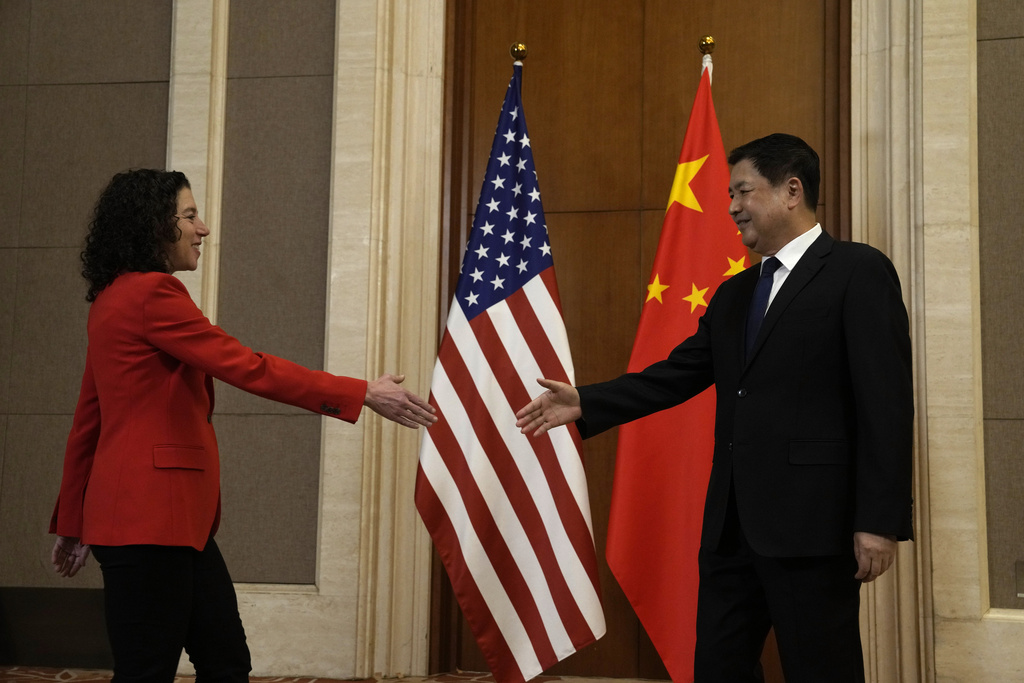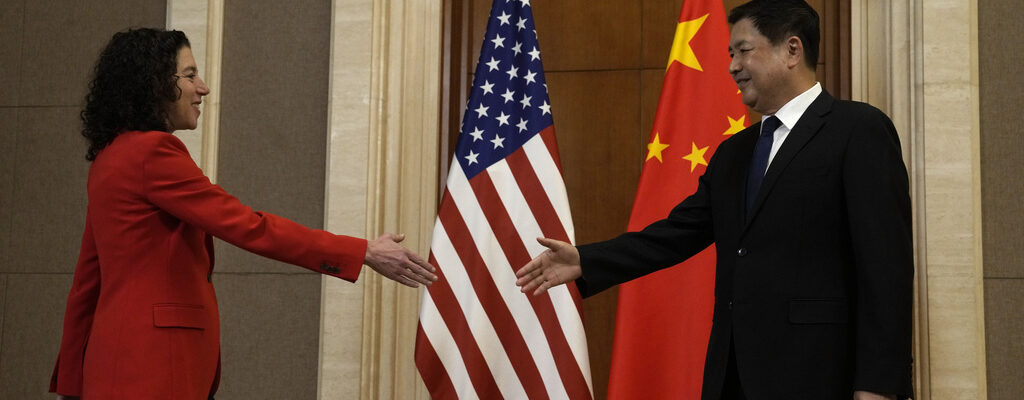U.S. and China Launch Talks to Stem Flow of Fentanyl, in Rare Sign of Cooperation

BEIJING — American and Chinese officials met Tuesday to discuss joint efforts to stem the flow of fentanyl into the U.S., a sign of cooperation as the two global powers try to manage their contentious ties.
[time-brightcove not-tgx=”true”]
The two-day meeting was the first for a new counternarcotics working group. One focus of the talks was fentanyl, the synthetic opioid that is ravaging America, and in particular ingredients for the drug that are made in China.
Chinese President Xi Jinping agreed to restart cooperation in a handful of areas, including drug trafficking, when he and U.S. President Joe Biden met outside San Francisco in November. The agreements were a small step forward in a relationship strained by major differences on issues ranging from trade and technology to Taiwan and human rights.
The U.S. wants China to do more to curb the export of chemicals that it says are processed into fentanyl, largely in Mexico, before the final product is smuggled into the United States.
Chinese Public Security Minister Wang Xiaohong said the two sides had in-depth and pragmatic talks.
“We reached common understanding on the work plan for the working group,” he said at a ceremony marking the inauguration of the group.
The head of the U.S. team, Jen Daskal, a deputy homeland security advisor in the White House, said that Biden had sent a high-level delegation “to underscore the importance of this issue to the American people.”
China used to be a major supplier of fentanyl, and the U.S. has credited Beijing for a 2019 crackdown that led to “a drastic reduction in seizures of fentanyl shipments … from China.” Now it wants Beijing to stop the export of the ingredients known as “precursors.”
Synthetic opioids are the biggest killers in the deadliest drug crisis the U.S. has ever seen. More than 100,000 deaths were linked to drug overdoses in 2022, according to the U.S. Centers for Disease Control and Prevention. More than two-thirds involved fentanyl or similar synthetic drugs.
China had previously rebuffed U.S. appeals for help as relations between the two global powers deteriorated, often responding that the U.S. should look inward to solve its domestic problems and not blame them on China.
Talks were formally put on ice in 2022, when China suspended cooperation in several areas including narcotics to protest a visit to Taiwan by then-U.S. House Speaker Nancy Pelosi.
The ice began to thaw in the lead-up to the Biden-Xi meeting in November 2023. A U.S. Senate delegation pressed the fentanyl issue on a visit to Beijing in October and said that Chinese officials expressed sympathy for the victims of America’s opioid crisis.
But China refused to discuss cooperation unless the U.S. lifted sanctions on the Public Security Ministry’s Institute of Forensic Science. The Commerce Department had imposed the sanctions in 2020, accusing the institute complicity in human rights violations against Uyghurs and other predominantly Muslim ethnic groups in China’s Xinjiang region.
The U.S. quietly agreed to lift the sanctions to get cooperation on fentanyl. Chinese Foreign Minister Wang Yi acknowledged “the removal of the obstacle of unilateral sanctions” in a speech on China-U.S. relations earlier this month.
State Department spokesperson Matthew Miller called it “an appropriate step to take” given what China was willing to do on the trafficking of fentanyl precursors.
View original article
Contributor: Ken Moritsugu / AP

